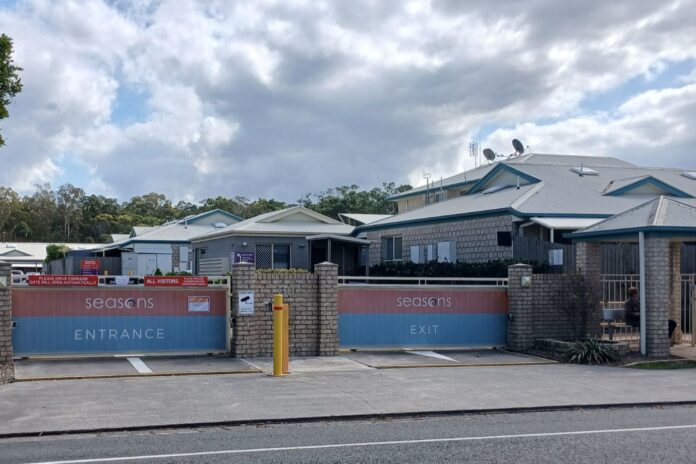The closure of a retirement village has been put on hold following concerns that its elderly residents could suffer “irreversible harm” without improved relocation assistance.
Six residents of Seasons Caloundra at Golden Beach challenged a decision by the Department of Housing and Public Works to approve a plan for the village to cease operating as a supported living community and transition to a rental-only model.
The Queensland Civil and Administrative Tribunal has now ‘stayed’ that decision, meaning the closure cannot proceed until the residents’ review application is addressed.
The stay was granted on June 16 by QCAT member Noel Jensen, who found the review should first consider whether the approved closure plan provided a “clear, orderly and fair process” as required under the Retirement Villages Act.
“The purpose of the review application is not to prevent the closure of the village; it is to seek a direction that the closure plan be revised to offer significantly improved assistance to residents to find alternate accommodation,” the ruling states.
“If the plan is implemented, then this opportunity will be lost to the applicants.”
The department approved Seasons’ proposed closure plan on March 14, and on March 18 the operator informed residents it would remove services such as the community bus and lifestyle program from March 28 and emergency call system from April 11.
The six residents – including Margaret Ross, whose family spoke out on the planned changes last year – lodged their appeal to review the decision and for a stay on March 27.
They argued a stay would not be an “unreasonable inconvenience” for Seasons because the village had already largely transitioned to a rental tenancy agreement model, with only six out of 120 apartments having a 99-year retirement lease tenure.
“It is submitted that this (enacting the closure) will cause irreversible harm to the residents who are seeking a direction that the closure plan be revised to offer significantly improved assistance,” the appeal documents state.

“Significantly increased assistance will be required to allow the affected residents, who are in the last stages of their lives, to find alternate, secure accommodation close to their family, friends and critical support networks.”
Seasons argued a stay order would cause it significant cost and inconvenience, including more than $90,000 to reinstate the community bus, $10,000 to restart the lifestyle program plus $15,000 annually, and up to $221,000 to restore the emergency call system plus ongoing costs.
It also claimed cutting the services would have minimal daily impact on the applicants, noting several had replaced the emergency call system, one had moved out, another was no longer suitable for independent living and others had alternative transport arrangements.
Help us deliver more news by registering for our FREE daily news feed. All it requires is your email at the bottom of this article.
The ruling notes the department did not oppose the stay.
“The first respondent (Department of Housing and Public Works) submits that while the RV Act cannot prevent the closure of a scheme, it can direct change to the closure plan,” it says.
“Without the stay, the review proceedings will possibly be rendered futile as the second respondent (Seasons) will not be prevented from implementing the currently approved closure plan.”
The tribunal ruled the applicants could suffer “irremediable harm” if the stay was not granted.
“In my view, the public interest is better served by ensuring that the requirements of the RV Act are able to be reviewed by the tribunal without change to the status quo, rather than allowing the second respondent to close the scheme and cancel the leases of the remaining residents before the review application is heard and determined by the tribunal,” the ruling states.
However, Seasons is not required to reinstate the community bus service, lifestyle program or emergency call system.
“I find it to be to be an unreasonable commercial requirement to place on the second respondent in these circumstances,” the ruling states.





